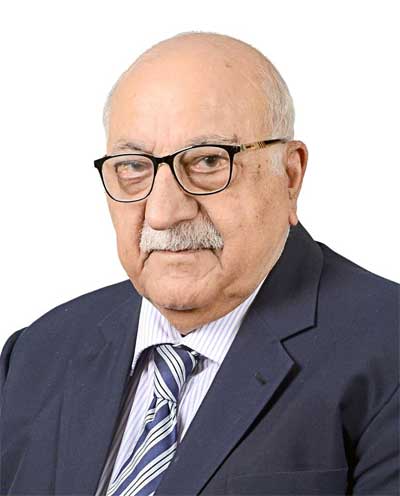Ever since Justice Javed Iqbal has taken over as Chairman NAB he is facing criticism from both sides’ government and opposition. It is very strange that Chairman NAB is appointed jointly by opposition and government after detailed deliberations but once he starts questioning about corruption matters he becomes the target because both parties consider it as their right to demand favouritism if they or their friends face NAB inquiries. There is no doubt that there has been massive corruption in Pakistan irrespective who was heading the government. Prior to 1997 corruption was sole domain of Anti corruption department and FIA. Since both these departments remained under pressure by the ruling party and acted according to their instructions thus faced criticism from public and media. It will be of interest to know the background what forced government to establish separate department to control corruption by National Accountability Bureau. To understand this we have to go in the past to trace its history.
As we all know it was on 6 November 1996 that President Farooq Laghari dissolved the PPP government headed by Benazir Bhutto on the allegations of corruption and misuse of power. Fresh elections were held and Nawaz Sharif came in to power for the second time in 1997 with two-third majority. A week before her dismissal, Benazir Bhutto had addressed parliament while introducing an anti-corruption bill and said that she was fed up with the never-ending and unsubstantiated stories of alleged corruption involving Asif Zardari and herself, and wanted the matter settled once and for all. However, her government was sent packing before the amendment could be approved by parliament. The caretaker government headed by Miraj Khalid had established an Ehtesab Commission through a presidential ordinance on which he faced criticised by political parties, but said that accountability was far more important than holding elections.
After few months in office the PML-N government endorsed the Ehtesab Commission with amendments in the Ehtesab Act 1997, which was approved by parliament and changed the name from Ehtesab Commission to Ehtesab cell and located it in the PM’s Secretariat, headed by Sharif’s closest friend, Senator Saifur Rehman. The law was further amended in February 1998 with a presidential ordinance giving full powers to Saif ur Rahman. It had its entire focus on former Prime Minister Benazir Bhutto, her family and close associates. She was incriminated on charges of misuse of power and possession of assets beyond known means of income. Her husband Asif Ali Zardari was detained on five corruption offences and a narcotics case. Ehtesab Bureau started to detain businessmen and bankers on Saifur Rehman’s instructions. This cell was accused of conducting politically motivated investigations of political rivals, senior civil servants and business figures to please Nawaz Sharif who was drowned in intoxication of two third majorities. While Gen Musharraf was returning from official tour of Sri Lanka, Nawaz Sharif removed Gen Musharraf from COAS appointment and appointed his friend Gen Ziauddin Butt. The army reacted to this most undignified act of Nawaz Sharif government and was removed on 12 Oct 1999 and Gen Musharraf became the Chief Executive of Pakistan. He established NAB to try corrupt people. Asif Zardari, arrested by the caretaker government after the dismissal of the PPP government in November 1996, spent eight years in prison. He was released on bail in 2004 by the Musharraf government. However it was in the year 2007, when the PPP and Gen Musharraf signed the National Accountability Ordinance (NRO) all the cases were closed. But the Supreme Court in 2009 through its decision declared the NRO null and void and resulted in reopening of these cases. By then, Asif Zardari was the elected president of Pakistan and thereby enjoyed constitutional immunity. After his term ended in 2013, he had to face references in Cotecna, Société Générale de Surveillance (SGS), ARY Gold, Urus tractors, Polo Ground, and the illegal assets cases. Cases filed by the Ehtesab Bureau and later taken up by the Musharraf-instituted NAB between 2014 and 2016 were quashed by the courts, and Zardari, along with all the other accused were freed
NAB over the years has seen many ups and down. So far we have seen 8 Chairman, except for Qamar Zaman Chaudhry who was Chairman from 2013 to 2017 remained under pressure of Nawaz Sharif. Justice Javed Iqbal is the current chairman who has created history in dealing with corrupt people. No one can influence him neither he takes pressure from any side. Has produced outstanding results in recovering looted money. During last three years he recovered Rs 484 Billion through plea bargaining and Prime Minister has acknowledged it publicly. Likewise NAB Rawalpindi has recovered Rs 23.85 billion in the fake bank accounts scam, who would forget recovery of Rs 630 million from Mushtaq Raisani, what an achievement. He has come under severe criticism by media and politicians but faced them boldly. He is man of iron will, man of strong nerves and no one can deter him from his duty. He deserves great appreciation in fighting out his character assassination by a group of media and defeated their all fabricated stories.
Chairman NAB still has time to go after the high profile cases. NABs ability to bring these cases to logical conclusion will be the determining factor of not only NAB but its Chairman’s performance. The eyes of the people are set on these cases and if nothing worthwhile comes out of them all the good work of NAB , the recoveries it has made may be forgotten ; so it’s time for NAB to tighten its belt and get down to hard work for the remaining tenure of this government.
Sign in
Welcome! Log into your account
Forgot your password? Get help
Password recovery
Recover your password
A password will be e-mailed to you.







